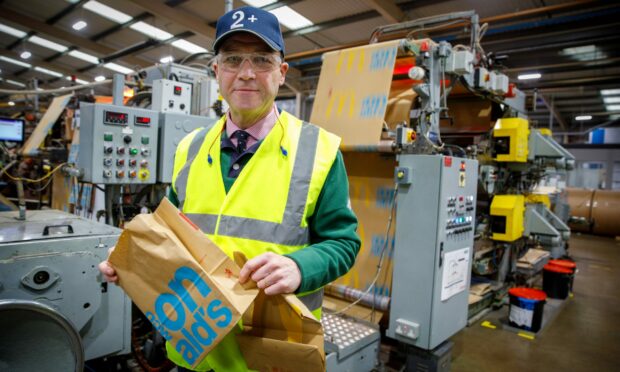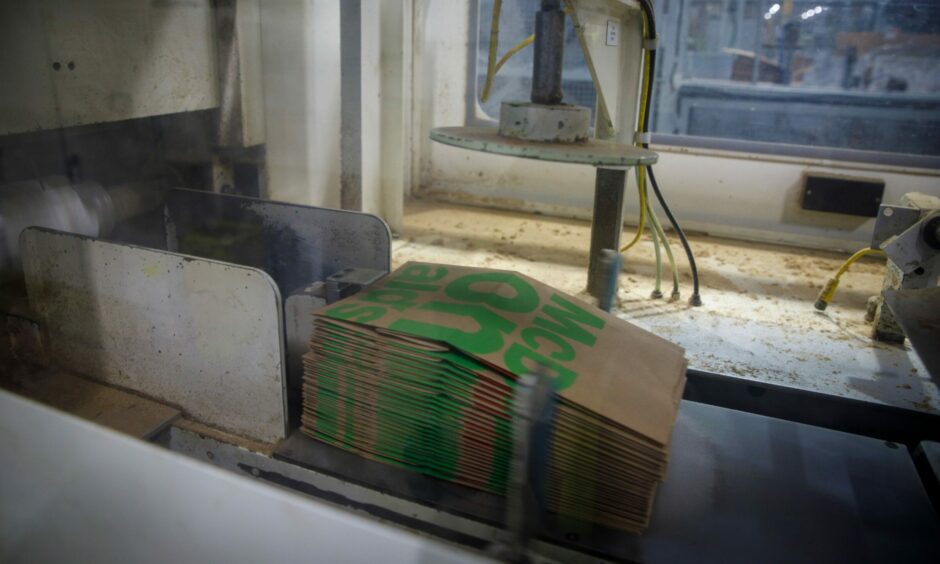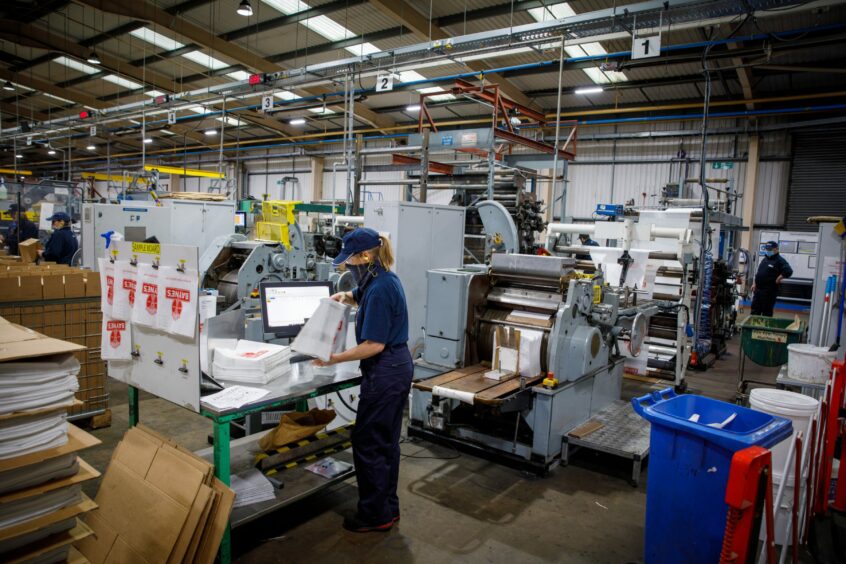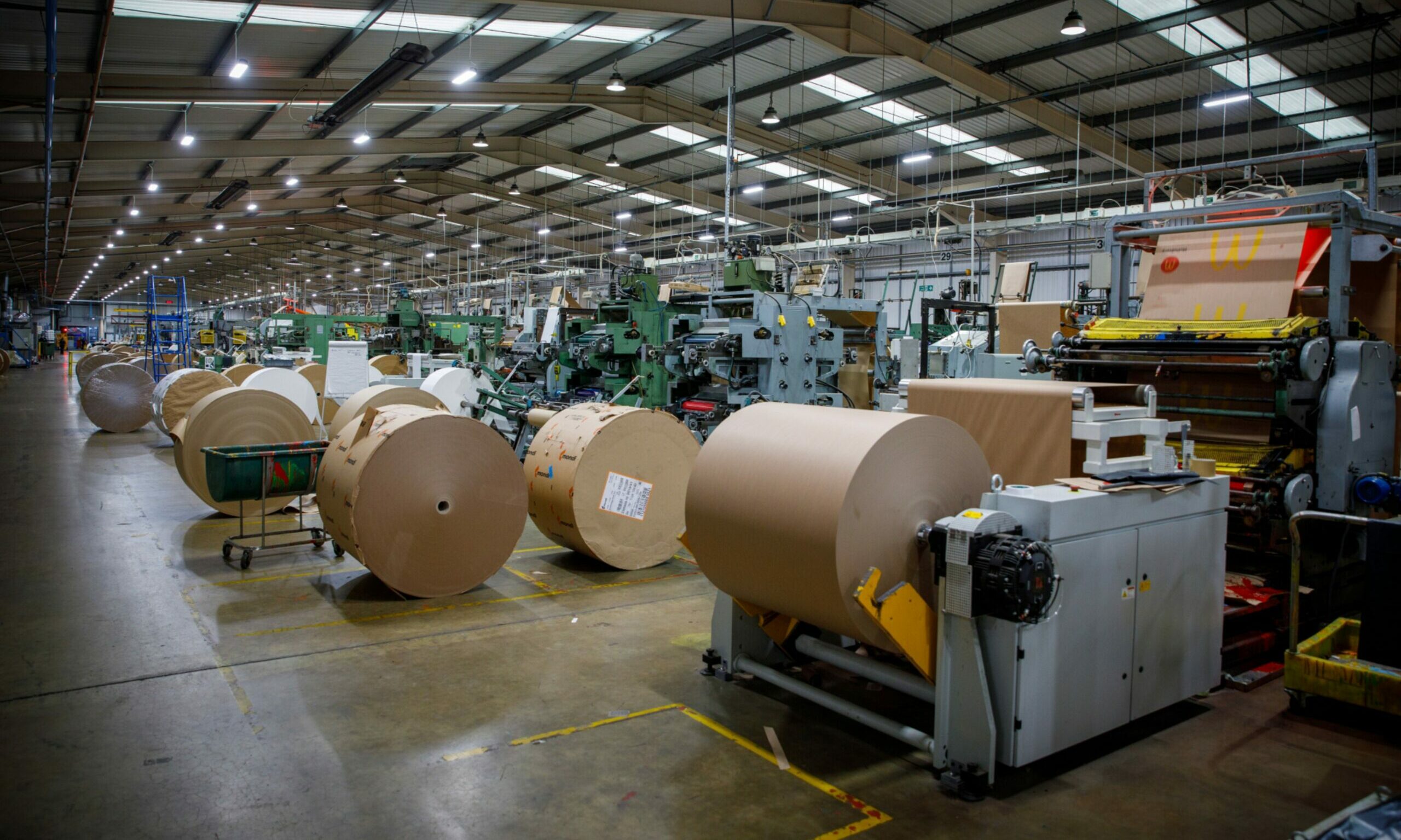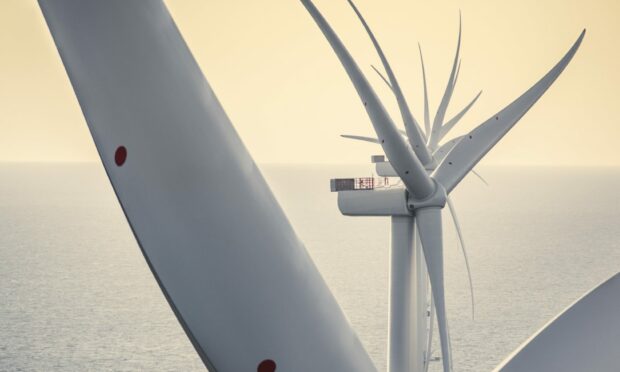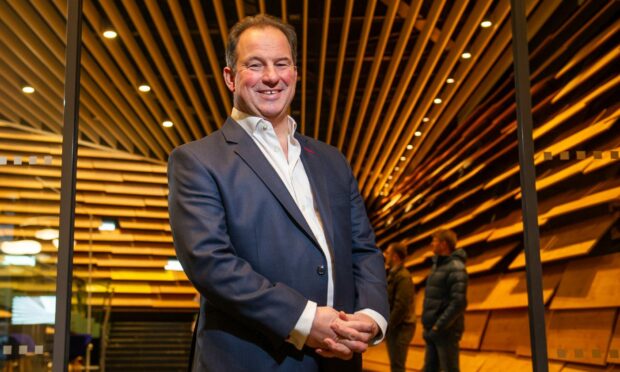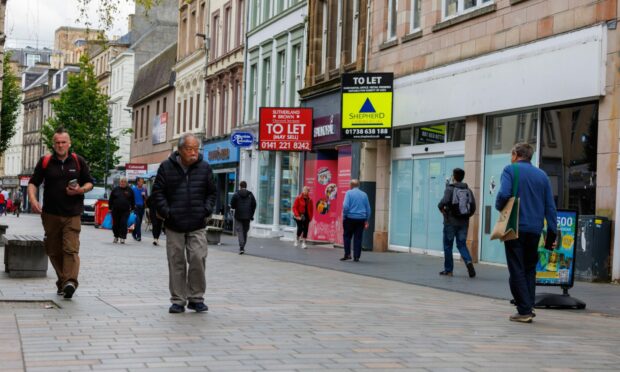For some factories a good level of production may be a few hundred units a week.
Some complex manufacturing may achieve a handful of orders a year.
In Fife, the Smith Anderson factory works at a different pace. It has machines that output 2,500 paper bags a minute.
The extraordinary rate of production means it can make up to 70 million bags a week.
These range from the simplest small paper bags to complicated products with bespoke printing and handles.
The Kirkcaldy company’s customer list has all the main fast food business in the UK including McDonald’s, Burger King and KFC. It is also the main supplier of pharmacy bags.
Success at retaining key customers and winning business has seen Smith Anderson expand rapidly in the past decade.
It now employs 265 staff and expects this to increase by 10% next year.
Service, consistency, reliability and innovation are key factors behind the company’s position but it has not always been an easy journey.
Focus on bags after closure of paper mill
Soon after joining the business in 1996, current chief executive Michael Longstaffe found it struggling against a tide of cheap foreign polythene bags.
At the time it was the UK’s second largest plastic bag manufacturer with sites in Falkland and Blairgowrie.
He created an outsourcing operation for supermarkets and closed the firm’s polythene production in 2000 with staff offered jobs on the paper side of the business.
But the company’s struggles weren’t over. In 2006 the Leslie paper mill went into receivership following a hike in energy prices.
Mr Longstaffe said: “It was a sad time but closing the paper mill was unavoidable.
“What I consider the success is that we managed to make sure the packaging side of the business didn’t go at the same time.
“We were able to sustain growth and build from there, relocate temporarily to Falkland and relocate very successfully to Kirkcaldy in 2011.
“We’ve expanded and benefitted from organic growth in the food service sector.”
Paper bags an eco alternative
The company’s relationship with McDonald’s can be traced back 45 years. It is McDonald’s oldest UK supplier of any product.
Smith Anderson has found itself well positioned as paper bags grow in popularity as an environmentally friendly product.
Covid-19 meant introducing new social distancing protocols and machine cleaning processes.
Although successful in preventing any in-factory transmission, Mr Longstaffe said it has probably led to a 10% to 15% reduction in capacity.
The firm’s growth has come from investment with significant outlays on staff and equipment.
Smith Anderson investment in staff and paper bags machines
During the pandemic it set up the Smith Anderson Performance Academy to train the next generation of workers. In the past six months it has taken on 50 staff.
Smart management has seen the company protected from a 30% increase in the raw material cost of paper this year. Its contracts allow it to pass on the costs.
It has also set up an innovation hub to explore more ways of adding value to its products.
Ripping up an old business plan to add a machine a year, last year Smith Anderson purchased four machines and plans to add five next year.
Mr Longstaffe said: “The most significant challenge for Smith Anderson is finding and training people.
“The Performance Academy is the answer to how we make sure we retain skills and pass on knowledge of bag making that’s been prevalent in Fife for more than 100 years.”
“We also need to ensure we have enough space to operate effectively from Kirkcaldy.
“One option is to store our finished goods elsewhere and convert 15,000 sq ft to additional production space. This would allow us to grow by a further 10 machines.”
